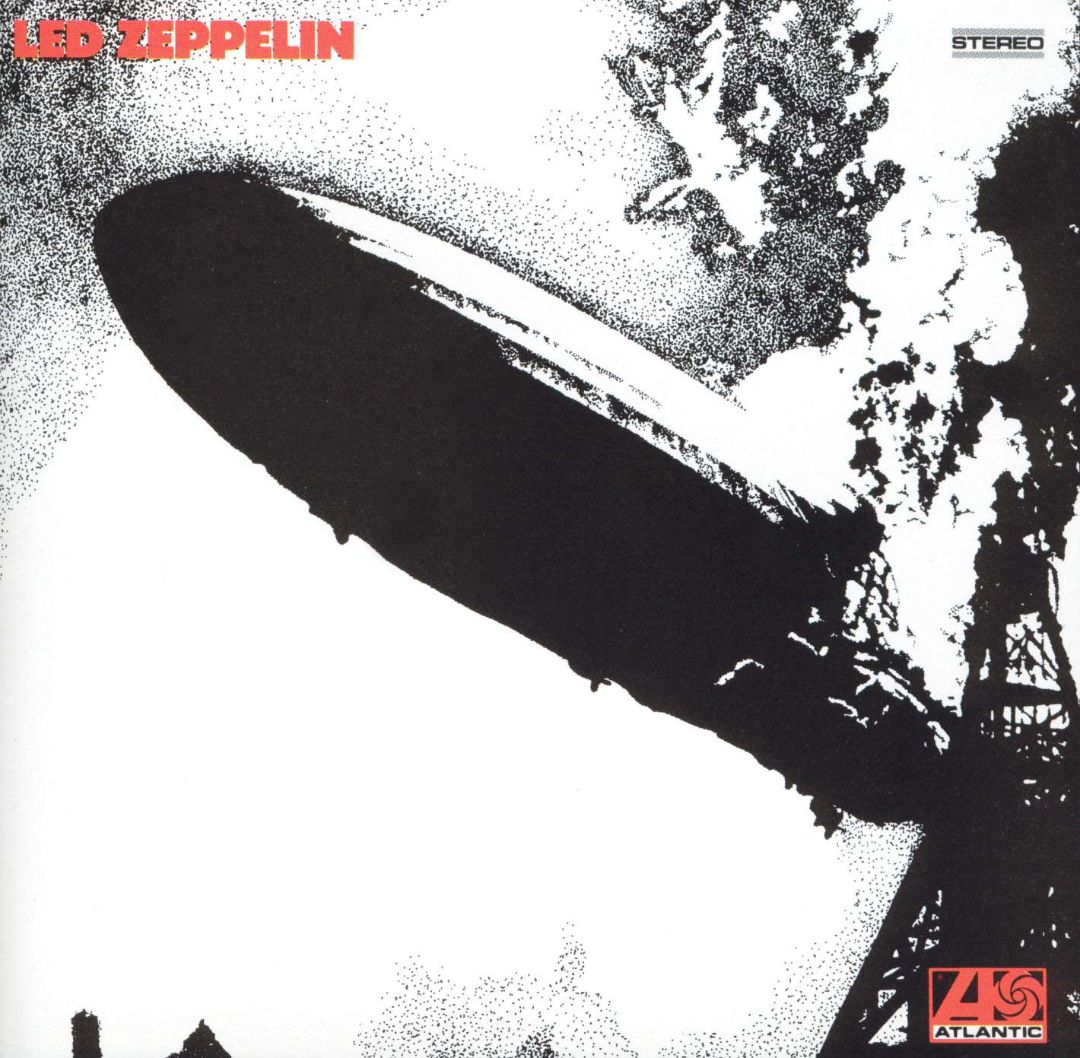
Led Zeppelin I (1969)

1. Good Times Bad Times
2. Babe I'm Gonna Leave You
3. You Shook Me
4. Dazed and Confused
5. Your Time is Gonna Come
6. Black Mountain Side
7. Communication Breakdown
8. I Can't Quit You Baby
9. How Many More Times
It’s difficult to name a band whose legacy looms larger over the granite face of 1970s hard rock than Led Zeppelin. Their debut, released in the final days of the 1960s, didn’t just herald the arrival of a new band—it signaled the tectonic shift of rock itself. And yet, for many, the band has suffered a peculiar fate: overexposure without true exposure. Victims of their own success, their best-known handful of songs have been played, re-played, and endlessly recycled by classic rock radio until their grooves wore thin in the public consciousness. For the uninitiated, it’s all too easy to dismiss them as just another bloated artifact of FM rock's golden age.
But such a view crumbles under the weight of Led Zeppelin I. One listen—just one, uninterrupted journey through its forty-five minutes—reveals what the band’s millions of imitators could never replicate: a blend of force, finesse, and genre-jumping dexterity that set the blueprint for the decade to come. Each member brings something singular. Jimmy Page, fresh from his tenure in The Yardbirds, arrives already sounding like a guitar deity. Robert Plant, with that operatic wail and surprising tenderness, would be endlessly copied and never equaled. John Bonham’s percussive assault made drums sound like artillery, while John Paul Jones, the band’s not-so-secret weapon, offered a blend of grounded bass and elegant keys that tied the whole thing together.
Side one is a microcosm of the band’s entire ethos. Good Times, Bad Times opens with a deceptively simple riff and tight arrangement—only two and a half minutes long, yet packing enough ideas to power a lesser band’s entire album. Babe I’m Gonna Leave You begins as a delicate acoustic lament before detonating into a full-blown sonic maelstrom, showcasing the group’s uncanny ability to shift dynamics without losing cohesion. Then comes You Shook Me, a straight blues workout, reeking of smoke, sweat, and authenticity. And if the listener hadn’t yet grasped the full might of Zeppelin’s vision, the side closer Dazed and Confused delivers the final blow—a dark, winding, psychedelic blues epic that lurches into chaos and somehow lands on its feet. Page’s violin bow theatrics, Plant’s ghostly howls, Bonham’s tribal fury—it’s all here.
Side two, often overlooked, is no less daring. Your Time Is Gonna Come floats in on Jones’s ethereal mellotron before resolving into a stomping piano-driven gospel-tinged rocker. Black Mountain Side offers a moment of acoustic serenity, rooted in folk and raga traditions, Page showing his debt to (and distance from) Bert Jansch and Davy Graham. Then it’s back to full-throttle on Communication Breakdown, a proto-punk sprint that rips by in under three minutes. I Can’t Quit You Baby returns to the blues, slow and sultry, with Plant aching and Page swooning across his fretboard. The album closes with How Many More Times, a shapeshifting, eight-minute odyssey that pulls every trick from the band’s playbook—funk, blues, psychedelia, and something altogether new, as yet unnamed. The song doesn’t end so much as dissolve into myth.
It’s worth remembering that this was 1969. The Beatles were preparing their final bow. The Stones were leaning into menace. Hendrix was flirting with jazz. Yet here was this new beast—loud, lean, and genreless. For those mourning the end of the sixties, Led Zeppelin I was a ferocious reassurance: the future of rock would not only be loud, but wildly inventive. The decade ahead would belong to bands that dared to build temples of sound—and Zeppelin had just laid the cornerstone.
Go back to the main page
Go To Next Review